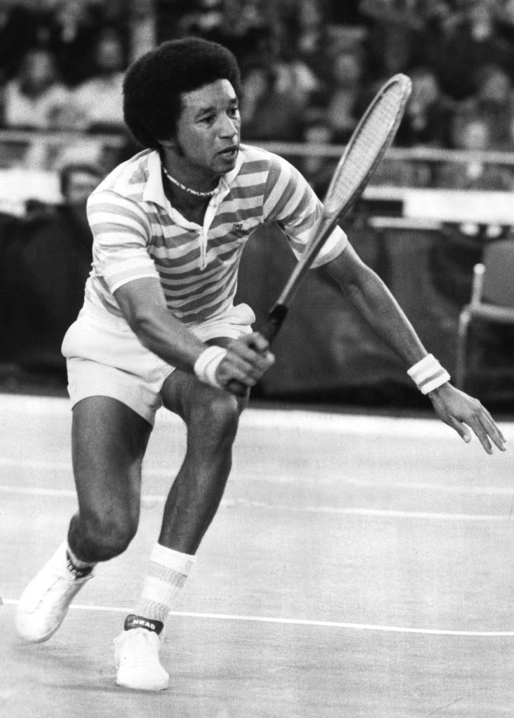I can predict the responses when I, a white male, criticize a person of color. “That’s so racist.” “You sound like a closet racist.” “You don’t understand the culture of race.” “You haven’t experienced what he or she has.” “You don’t know what it’s like to be a person of color.” “You can’t understand because of your ‘white privilege’. ”
Almost from the beginning of these conversations I’m on the defensive. I say I’m not talking about race. I explain that I’m talking about a person or a behavior. I’m expressing my opinion that the behavior is unacceptable, or that the person is acting like a jerk or simply out of line, but inevitably I have to defend myself against a charge of racism.
Am I a racist? Am I blind to my own prejudice? Maybe. I’m certainly aware it’s a possibility. I’m white. I grew up white. My parents were white and it’s possible I’m simply unaware of my racial bias? I sometimes ask myself if my criticism of someone is well founded or whether it’s because its object is a person of color? I could be wrong, but isn’t that kind of criticism of me just a racist trope, accusing me of racism because I’m criticizing a person of color? Am I supposed to limit my social commentary, especially negative commentary, to white folks like me?
The dictionary defines racism as the belief that a particular race is superior to another, that race is the primary determinant of human traits and capacities and the differences produce the inherent superiority of a particular race.
So where am I coming from? What’s this really about? It shouldn’t be a surprise, it’s about Serena Williams, that never-ending lightning rod for racial controversy.

The greatest woman tennis player of all time? Yes. 23 Grand Slam titles? Yes. Rises from the ghetto in Compton to become a champion? Yes. New mother? Yes. Poor loser? Yes. Bad actor? I think so.
Last weekend, down 2-6, 3-4 in the US Open Women’s Championship match she lost it – the match and her emotional cool. After being outplayed by 20-year-old Naomi Osaka for almost two hours Serena had a meltdown that cost her (1) a warning for a coaching violation (2) loss of a point for breaking her racquet and (3) loss of a game for verbally attacking the chair umpire. With the score then 3-5, Osaka finished off the match to win the championship. The final score 6-2, 6-3. It’s worth pointing out that in their only other meeting, at the 2018 Miami Open, Osaka beat Serena 6-3, 6-2 to win that championship too, making it two wins to none for Osaka in head to head matches with Serena.

In the interest of full disclosure, despite her unparalleled achievements as a tennis player, I’ve never liked Serena Williams. Never – but it’s not about tennis. I see her as a hypocrite and sore loser. She may be the greatest woman tennis player of all time, but I don’t think she’s an admirable person. I respect her sister, Venus, but think Serena is an insincerely modest winner and a sore loser – blaming anyone but herself when she loses.
Over the years she has had a series of incidents that reveal a pattern of self-destructive meltdowns. At match point, during the 2009 US Open semi-final against Kim Clijsters, an Asian lineswoman called a foot fault, that caused Serena to threaten the woman with, “If I could, I would take this fucking ball and shove it down your fucking throat.” That outburst cost her a point, after moments earlier being warned (a precursor to the penalty) for throwing her racquet (eerily like last weekend). The penalty point cost Serena the match (again, like last weekend).
And, last week’s dust up is not the first time Serena has taken the shine off an opponent’s US Open victory. In 2011, she lost the championship to Samantha Stosur, but sucked all the air out of the room by throwing a fit mid-match, berating the chair umpire, and refusing to apologize. Like her behavior in the Osaka and Clijsters matches, she was being badly beaten but created a firestorm that took away from her opponent’s well-deserved celebration.
That’s three notable instances of losses at the US Open in which her own churlish, out of line behavior diminished the achievements of another player. After last Saturday’s match the internet was alive with the Serena story, and many of my African-American and Asian friends came down heavily on Serena’s side, something I hadn’t anticipated and which added to my self-questioning. Am I being racist? Or sexist? I don’t think so, but I’m on the inside looking out.
It’s arguable that behavioral rules and penalties are subjectively applied in tennis. Serena argued forcefully that penalties are imposed more often against women than the men, but an article in today’s New York Times shows that to be false.
I’m a huge tennis fan. I play 3-4 times a week and spend hours watching the Grand Slam events. I get up at 2 a.m. to watch the Australian Open, 5 a.m. to watch the French Open and Wimbledon, and have attended all of them. I’ve also been a player for over 60 years.

I don’t think of myself as racist, but I’m obviously bothered by the criticism. I’ve been a civil and voting rights advocate since the ’60s and have a wide circle of friends who are also active, but I’m reminded of the old saw about “Some of my best friends are black (or Jewish).” I don’t think I’m like that, but we all see ourselves through self-serving lenses.
Having acknowledged my concern, I can say honestly that my all-time idol, regardless of race, is Arthur Ashe–not just in tennis but in every way. He was a trailblazer in America and challenged apartheid in South Africa. He died of AIDS but faced it with courage and dignity. His autobiography,“Days of Grace” is my favorite of the genre. He happened to be black and a tennis player, but those are not the attributes that made him admirable. It was his humanity and courage in the face of real adversity that made him great. I see a similar quiet dignity in Naomi Osaka, the 20-year-old mixed race (Haitian/Japanese) woman who defeated Serena last weekend, and I look forward to seeing a lot more of her in the future.
I realize that my criticism of Serena is a no-win situation. Last year I wrote an article called “We’ll Never Get Over Slavery. I sincerely believe that to be true, but I try every day to live as if it isn’t and to emulate Arthur Ashe. I wish Serena would too.
































Really enjoyed this ~ comments are right on the mark! Warm Wishes to you and Marilyn, Susan